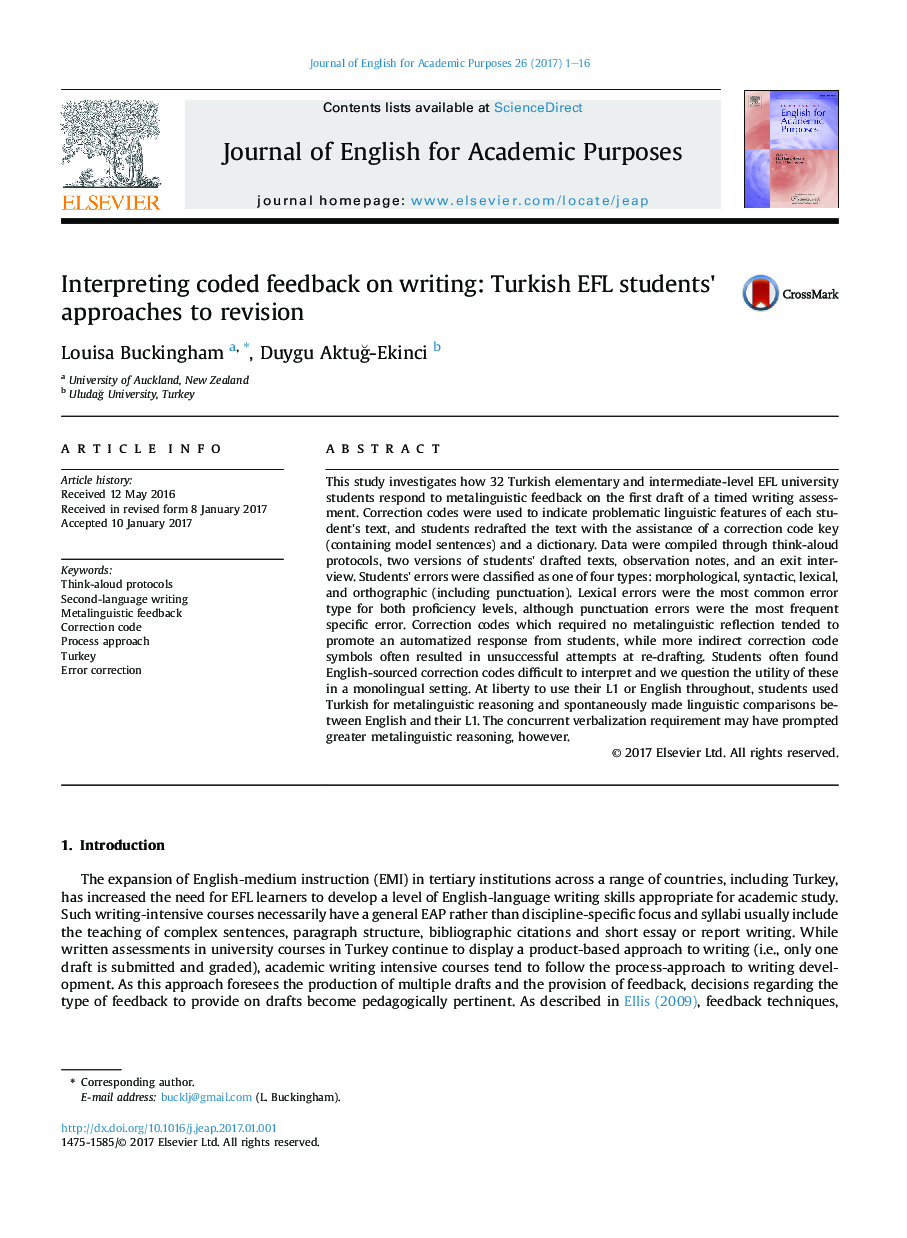| کد مقاله | کد نشریه | سال انتشار | مقاله انگلیسی | نسخه تمام متن |
|---|---|---|---|---|
| 4939250 | 1435965 | 2017 | 16 صفحه PDF | دانلود رایگان |
عنوان انگلیسی مقاله ISI
Interpreting coded feedback on writing: Turkish EFL students' approaches to revision
دانلود مقاله + سفارش ترجمه
دانلود مقاله ISI انگلیسی
رایگان برای ایرانیان
کلمات کلیدی
موضوعات مرتبط
علوم انسانی و اجتماعی
علوم انسانی و هنر
زبان و زبان شناسی
پیش نمایش صفحه اول مقاله

چکیده انگلیسی
This study investigates how 32 Turkish elementary and intermediate-level EFL university students respond to metalinguistic feedback on the first draft of a timed writing assessment. Correction codes were used to indicate problematic linguistic features of each student's text, and students redrafted the text with the assistance of a correction code key (containing model sentences) and a dictionary. Data were compiled through think-aloud protocols, two versions of students' drafted texts, observation notes, and an exit interview. Students' errors were classified as one of four types: morphological, syntactic, lexical, and orthographic (including punctuation). Lexical errors were the most common error type for both proficiency levels, although punctuation errors were the most frequent specific error. Correction codes which required no metalinguistic reflection tended to promote an automatized response from students, while more indirect correction code symbols often resulted in unsuccessful attempts at re-drafting. Students often found English-sourced correction codes difficult to interpret and we question the utility of these in a monolingual setting. At liberty to use their L1 or English throughout, students used Turkish for metalinguistic reasoning and spontaneously made linguistic comparisons between English and their L1. The concurrent verbalization requirement may have prompted greater metalinguistic reasoning, however.
ناشر
Database: Elsevier - ScienceDirect (ساینس دایرکت)
Journal: Journal of English for Academic Purposes - Volume 26, March 2017, Pages 1-16
Journal: Journal of English for Academic Purposes - Volume 26, March 2017, Pages 1-16
نویسندگان
Louisa Buckingham, Duygu AktuÄ-Ekinci,